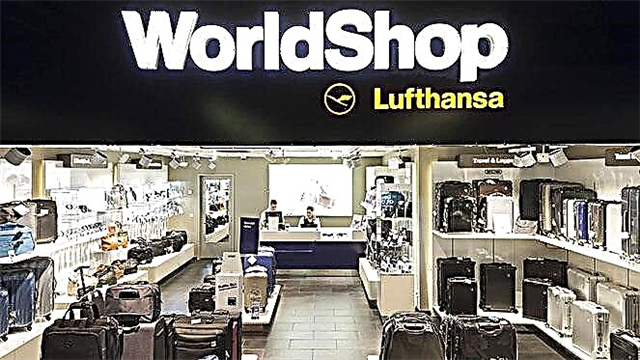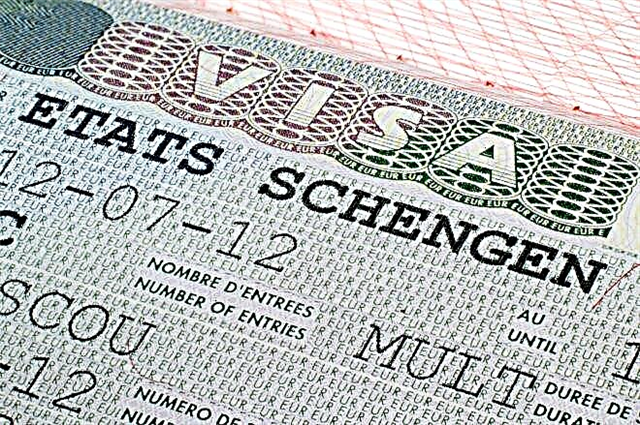Working in Europe means higher wages and the possibility of long-term residence in the territory of a member state of the European Union. The easiest and most comfortable for Ukrainians, Russians, Belarusians and immigrants from other countries of Eastern Europe is to apply for a Polish visa. This country is distinguished by a loyal attitude towards labor migrants and a variety of vacancies. But with a Polish visa, you can work in other states, for example, in the neighboring Czech Republic. Working in the Czech Republic on a Polish visa is a legal way to find a job, since an agreement on the exchange of labor was signed between Prague and Warsaw.

Benefits of employment in the Czech Republic
The Czech Republic is distinguished by a fairly high level of salaries, in 2021 the average salary reached 28 thousand kroons. At the same time, the level of prices for food, rental housing and transport remains much lower than the European one.
With legal employment, a foreign migrant will have a whole package of social guarantees, including paid leave and sick leave.
He will also be able to take his relatives and family members with him by applying for a “family reunification” visa.
The Czech Republic is characterized by linguistic and cultural affinity with the Slavic peoples, so the adaptation of labor migrants usually occurs quickly.
The Czech Republic is fully integrated into the labor market of the European Union, and therefore foreigners get the opportunity for further career advancement with a move to the West. Migrants working in the Czech Republic are free to move around the Schengen area.
Conditions for working in the Czech Republic according to Polish documents
Many labor migrants mistakenly believe that it is possible to apply for a visa in one country and find a job in another. In practice, this option is illegal, since, in accordance with the EU visa rules, the visa provides for staying in the very country that issued the entry document.
Most often, migrants from Eastern European countries are employed on a work visa in Poland.
This country is characterized by the most loyal laws, and any citizen who has the intention to take him to work from the employer can obtain a visa. But when it comes to employment, in Poland you will have to reissue documents, even changing the place of work within the same company or one city.
Suppose a migrant received a Schengen visa at a Polish diplomatic mission. This document provides for the obligation most of the time is located on the territory of this state. This excludes the possibility of employment in another country.
The working option is to apply for a national long-term visa D. But to move to the Czech Republic, in this case, you will need an official business trip.
Don't forget about time constraints. You can work on such a visa in the Czech Republic for no longer than 3 months.
In practice, most often people come to work in the Czech Republic with a Polish visa.
- employees of international companies who previously worked in the Polish branch, and then transferred to the Czech branch;
- employees who got a job in Poland and periodically work in the Czech Republic.
Where to find work in the Czech Republic on a Polish visa
To get a job with the prospect of moving to another country, you should look for specialized vacancies.
The easiest way is to search for proposals at international enterprises that have many branches in the Czech Republic and in companies whose work is associated with constant business trips, movements, trips. Firms that work closely with suppliers or other counterparties from the Czech Republic are also suitable.
And, of course, we shouldn't forget about Czech companies that have expanded their activities to Poland. The ideal option is an employer who is really interested in staffing a branch in the Czech Republic.
You can also transfer from a Polish company to a Czech one, but this option is very difficult to implement in practice - you will have to conclude an agreement with two employers at once. And if a Czech employer gets a specialist, the Polish turns out to be completely uninterested.
Sometimes it is almost impossible to do without intermediaries, since vacancies with guaranteed business trips to the Czech Republic are rare.
Even an employer of an international company will not be able to guarantee employment in the Czech Republic, especially a long-term one.
In addition, some businesses are still reluctant to hire foreigners. But you should start an independent search according to the standard scheme, on sites on the Internet, and recruiting agencies in Poland.
Below is a list of sites and companies engaged in the selection of vacancies for foreigners:
- http://poland2day.com/jobs/
- https://pl.jooble.org/
- https://www.pracuj.pl/
- https://www.olx.pl/
- https://www.praca.pl/
- https://www.infopraca.pl/
- https://www.adzuna.pl/
A legal recruiting agency must be entered in the register, be sure to check the selected company to exclude the possibility of cooperation with scammers.
Applying for a job on a Polish visa to the Czech Republic
The first step is to resolve issues with legal employment in Poland. Labor migrants must have a work permit and an employment contract concluded with a current employer in any Polish city. Further, there are two options for sending an employee to the Czech Republic - a business trip to the Czech branch of the same company or drawing up an agreement with a Czech employer.
As for the second, as mentioned above, such agreements are rare. But some firms have agreements in force and exchange workers for up to 3 months. On the paper, it is necessary to indicate the exact dates of the business trip and the position to which the employee is sent, or a list of his functions.
Any employer has the opportunity to send an employee on a business trip not only to the Czech Republic, but also to other countries of the European Union. If a labor migrant seeks to get to Western Europe, for example Germany, then the option with an intermediate job in Poland may be the easiest one.
Then the employee collects the documents:
- international passport,
- Polish work visa or Pole Card, Residence Card,
- an employment contract with an employer in Poland,
- a contract between a Polish and a Czech employer or an order to transfer to another branch.
The employer prepares for him a standard entry document for 3 months - Van der Elst visa.
After that, you can pack your bags and go on a business trip. But remember that working on a Polish visa has a number of features. For example, according to Czech legislation, by opening a work visa for 3 months and closing it without violations, an employee can apply for a long-term entry document. But business trips on a visa of another country are not taken into account, so such employees do not have such a right.
Van der Elst visa
We mentioned above that a Polish employer has the right to send an employee not only on a business trip to the Czech Republic, but also to any other EU country where he has branches. However, before going to another place of work, the employee will have to additionally issue a document called the Van der Elst visa.
Van der Elst is a universal EU document for labor migrants that allows you to work for no more than 3 months in Germany, France, Belgium and other countries, having a work visa of another EU country.
There are exceptions. Italy, for example, does not issue such visas.

Documents required for registration
The employee should apply with the package of documents to the consular department of the Czech Republic in Poland.The questionnaires are filled out in the Czech language; if necessary, the consulate offers labor migrants the services of an interpreter.
Required documents:
- a foreign passport valid for at least months;
- completed application form (can be taken directly from the consulate or downloaded from the official website);
- Polish labor visa;
- an employment agreement with an employer or an agreement between Polish and Czech employers, if a transfer to another company is planned;
- a business trip application from the employer;
- insurance policy.
Cost and period of visa processing
Van der Elst is also provided for a period of 3 months, it takes approximately 2-3 weeks to process the document. The consular fee for a visa corresponds to 75 euros, according to general rules, it is not refundable, even if a negative decision is made on the application.
Additionally, the applicant can order other consular services, for example, delivery of a passport, CM-informing, translation of documents. The prices for these services should be viewed on the official website of the consulate or check at the box office. If you turn to intermediaries, the price of a visa can double.
How long can you work in the Czech Republic according to Polish documents?
Regardless of how the business trip is arranged (transfer to another division in Prague and other cities within the same company or the conclusion of an agreement between two employers), you can work on the basis of Polish documents for no more than 90 days. Violating this rule, the employee may face problems with obtaining the next Schengen visa.
How not to face scammers: tips
Working in the Czech Republic on a Polish visa is popular among labor migrants, but many people find it difficult to find such a job, so they resort to the services of intermediaries.
Indeed, in Russia, Ukraine, Belarus and other post-Soviet countries, you can find hundreds of vacancies with the prospects of business trips to the Czech Republic, but migrants should be careful not to contact scammers hunting for their money.
Check documents
In order not to become a victim of dishonest entrepreneurs, the applicant should pay attention to the verification of the selected company. The first step is to check the availability of licensing documents.
The company must be registered as a legal entity in the territory of the country where it provides services, i.e. in the Russian Federation, Belarus and so on.
The client has the right and even must, for his own safety, ask for a certificate of registration, as well as an agreement with an employer in Poland and the Czech Republic.
It is the agreement with foreign employers that confirms that the company actually employs people legally, and does not use illegal schemes.
Don't pay in advance
Dishonest intermediaries use any available ways to lure money from the client in advance, they will say that funds are needed to send documents, consultation, some kind of payment to the consulate. You cannot believe this, because officially intermediaries can take payment for their services only upon employment - from the employee's first salary.
All other expenses, the same consular fee, are paid by the applicant directly to the consulate, and no intermediaries are needed for this.
Don't settle for other documents
Sometimes intermediaries offer to draw up not working documents, but, for example, tourist, cultural, and so on.
They may say that it will be possible to “work in the Czech Republic longer”, but in practice such proposals entail illegal employment without any guarantees and violation of the law.
Pay attention to the interview
The applicant has every right to know all the intricacies of employment, and if the company cites some strange reasons, evading answers, this is a reason to think. If the company has been successfully operating for several years, then all stages of employment have long been established and it will not be difficult to tell a new client about them. Also, questions about the size and conditions of payment of wages will not cause difficulties.
Another indicator is the interview.
If the migrant worker was not asked about work experience, was not asked for a resume, and did not show any interest in his professional skills at all, then the announced employer may turn out to be a fake.
What threatens a migrant with illegal employment
Employment in a country without documents required for this is a rather serious violation of migration legislation. It will have consequences not only for the employee, but also for the employer.
The company will pay a fine for attracting illegal labor, and the employee will be forced to return home.
Most likely, he will not be able to apply for a visa in the future, he will be included in the black list of violators, and in Europe this is taken very seriously. One precedent is enough to ban a citizen from entering the EU for life.
Frequently asked questions about employment
Often the internet contains conflicting information about employment for women and men in the Czech Republic. Before contacting employers or intermediaries, you should know the answers to the most common questions.
Is it possible to extend work in the Czech Republic by finding a job on a Polish visa
Unfortunately, no such mechanism is provided.
Only employees with Czech documents can extend and issue longer-term visas. If we are talking about an employee with a Polish visa, he can go to the Czech Republic only after receiving the necessary package of papers again. A visa is, in fact, issued for one business trip.
The essence and amount of payment for legalization in the Czech Republic
Legalization fee - the tax for the full registration of an employee to work in the Czech Republic on visa documents of another country.
The employee is charged a fee for the legalization of labor in favor of the state. It is 3000-4000 kroons, depending on the amount of income, the additional tax is transferred to the budget once. It is an additional tax paid on wages during a business trip.
Is it realistic to find a job in the Czech Republic without a Van der Elst visa
It is impossible to do this legally, because a Van der Elst visa is a mandatory document for crossing the border during a business trip and employment in the Czech Republic.
Conclusion
Salaries, high social standards, and many vacancies in European companies make work in the Czech Republic attractive for labor migrants. However, it is not so easy to find a job with a Polish visa in this country. There are two legal options - transfer to a Czech branch within one company or a business trip to another company.
In either case, the term of work will not be more than 3 months with a Van der Elst visa.











